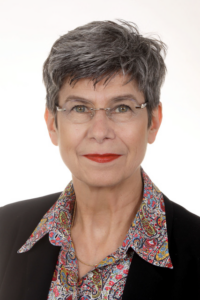Next Conservation Conversations Featuring Helene Tello 12/1 @ 11 AM PT
PRESENTER
Helene Tello
Helene Tello is working since 2020 as a freelance senior conservator. Starting her career in 1980, she opened her own conservation studio in 1983. Then she moved on to the Vonderau Museum in Fulda, Germany. Subsequently, she looked after the Indian collections at the Ethnologisches Museum of the Staatliche Museen zu Berlin (Ethnological Museum of the National Museums in Berlin), Germany, from 1998 to mid-2020. There, she encountered the topic of pesticides formerly used on objects. She conducts research on decontamination methods of such treated cultural assets as well as safe handling of them for everyone who has to deal with it. Due to the opening of museum collections to indigenous people, who started collaborating with the museums as well as repatriating their own cultural assets, her many years of expertise are extremely important in our time. Her knowledge is spread out through numerous journal contributions, teaching activities and lectures at home and abroad. Helene Tello will be researching on the Native American Grave Protection and Repatriation Act (NAGPRA) from May to October 2024 as part of her Fulbright scholarship at the University of California in Los Angeles (UCLA). This takes place against the background of the debates on neocolonialism that have arisen in Germany and Europe and the demands of indigenous people on museums for collaboration and restitution of their cultural assets.


